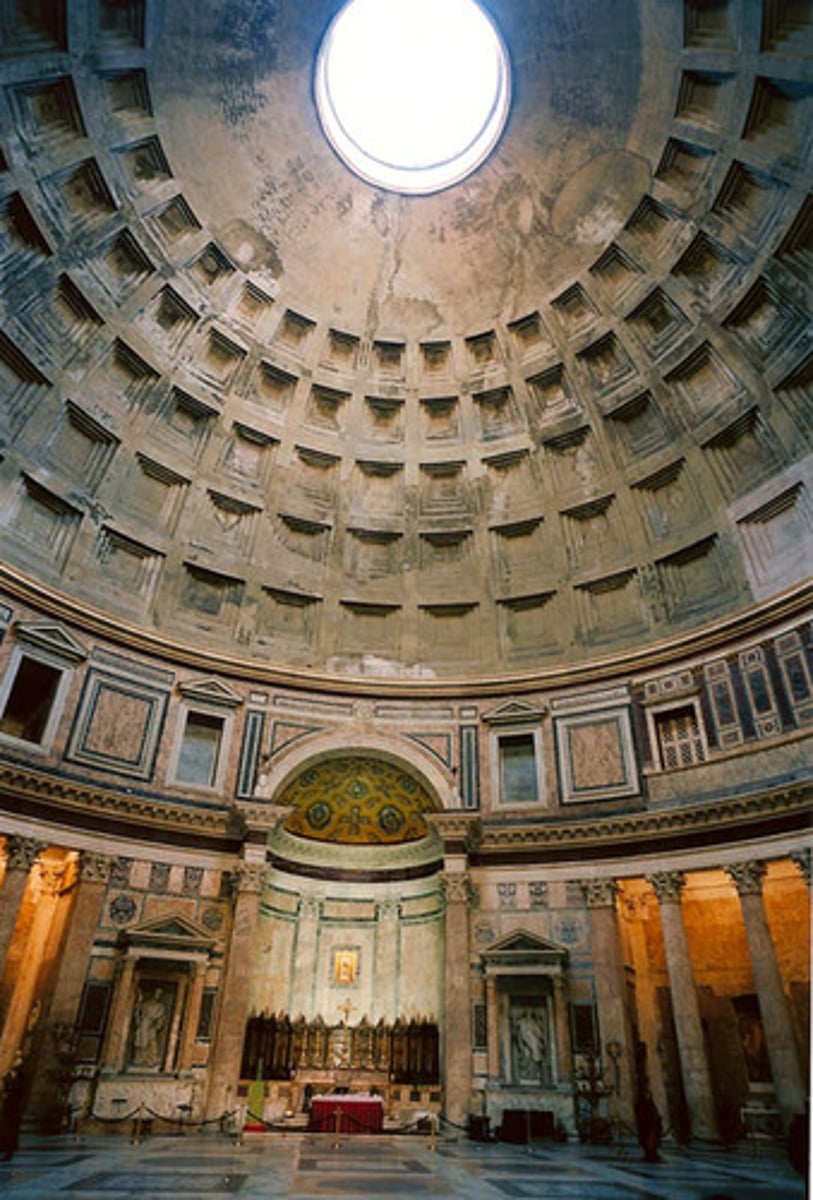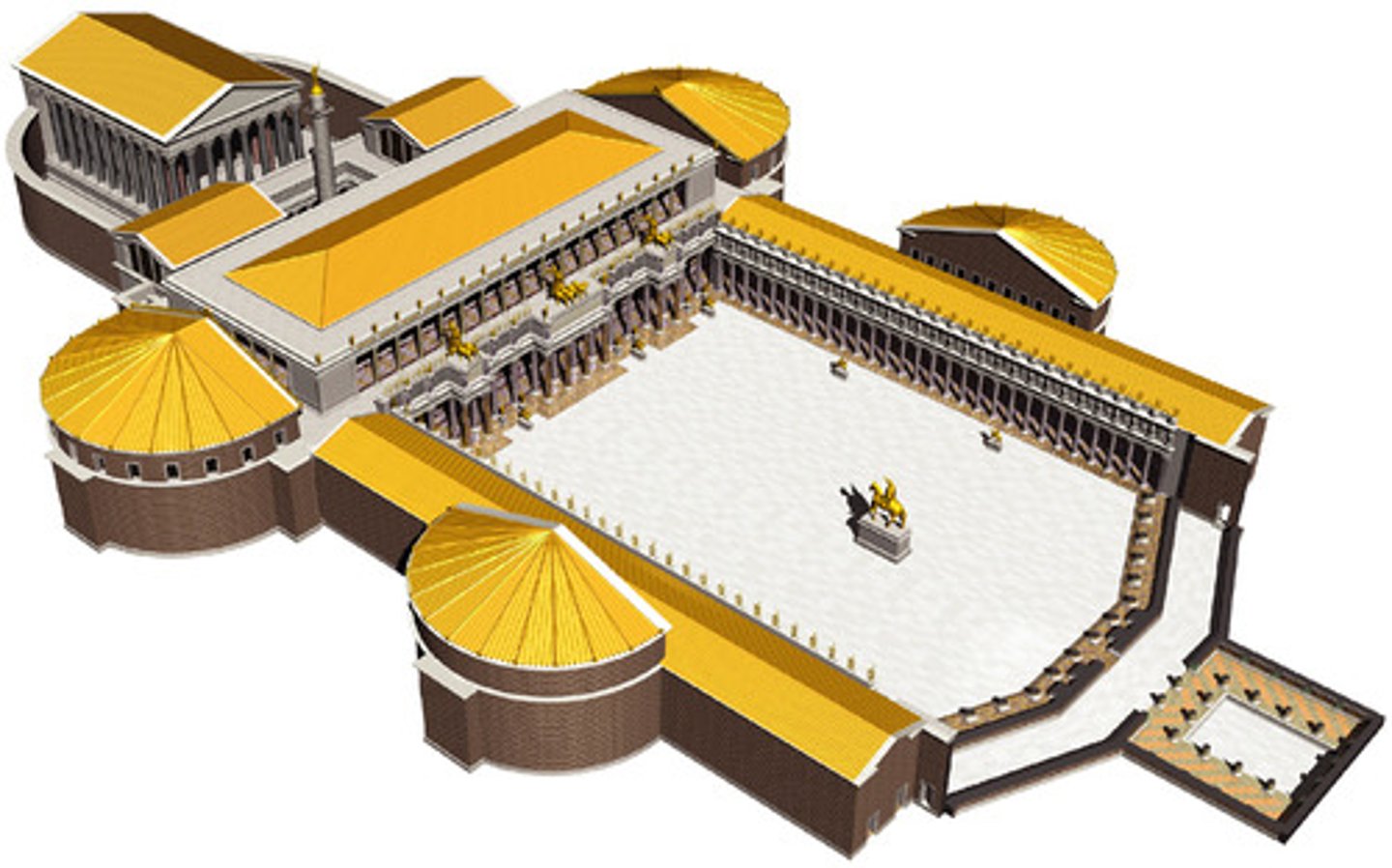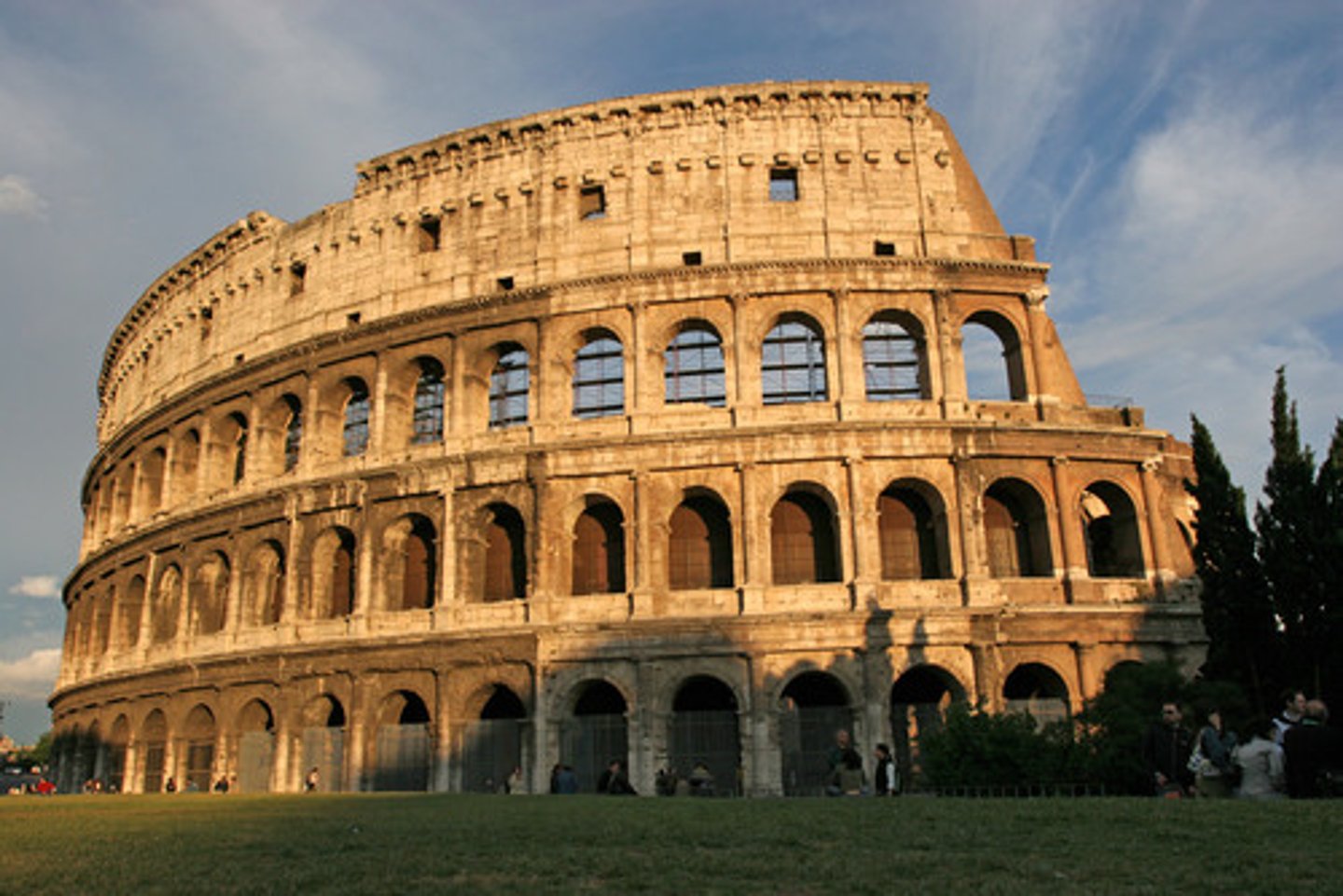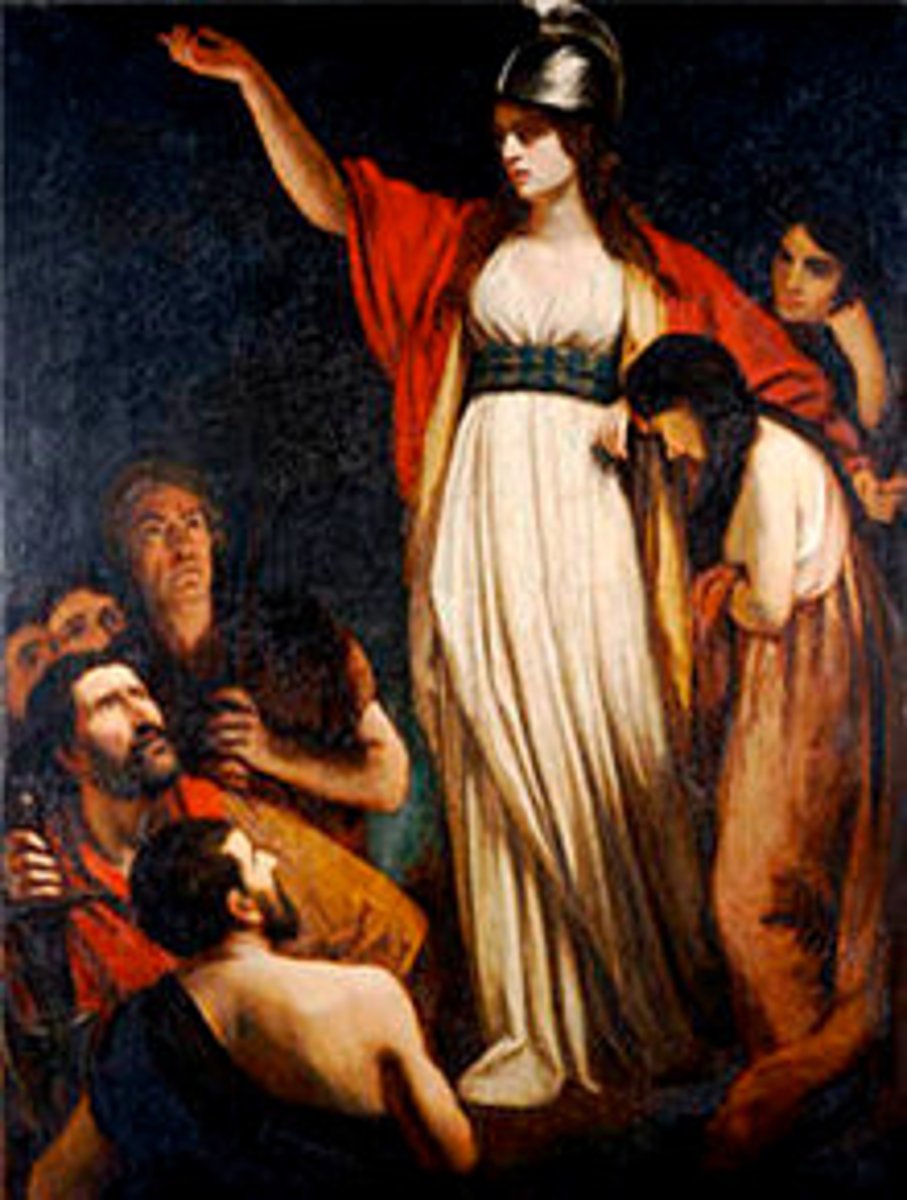Roman Empire
1/28
There's no tags or description
Looks like no tags are added yet.
Name | Mastery | Learn | Test | Matching | Spaced | Call with Kai |
|---|
No analytics yet
Send a link to your students to track their progress
29 Terms
Pantheon
Domed temple
Built of concrete with stone facing

Forum
Rome's public meeting place

Colosseum
A large stadium in ancient Rome where athletic events took place

Pax Romana
"Roman peace"
A period of peace and prosperity throughout the Roman Empire, lasting from 27 B.C. to A.D. 180.
Paul
* Saul, persecutor of early Christians
* Follower of Jesus who helped spread Christianity throughout the Roman world.
Constantine the Great
Emperor of Rome who adopted the Christian faith and stopped the persecution of Christians (280-337)
Diocletian's Reforms
* Split the empire into two regions (and then 4 -- the tetrarchy) run by co-emperors.
* Brought armies back under imperial control
* Strengthened the imperial currency, capped prices
Ptolemy
Alexandrian astronomer who proposed a geocentric system of astronomy that was undisputed until Copernicus.
Virgil
Classical Roman poet, author of the Aenied; tried to show that Rome's past was as heroic as Greece's.
Bishop
A church official who leads a large group of Christians in a particular region
Church Council
a gathering of the Church's leaders and scholars to decide major beliefs and/or actions for the Church
Council of Nicaea
A council called by Constantine to agree upon correct Christian doctrine and settle some disputes of the time.
Pope
Bishop of Rome, head of the Roman Catholic Church
Christian teachings
* One God
* Suffering for others is divine.
* Love one's enemies
* God's kingdom is coming
* Humility was good
Persecution of Christians
Because they were seen as bad citizens for refusing to worship the emperor and state gods.
Constantinople
City founded as the second capital of the Roman Empire; later became the capital of the Byzantine Empire
Odoacer
Germanic barbarian leader who ended the western Roman Empire in 476 and became the first barbarian ruler of Italy (434-493).
Edict of Milan
Issued by Constantine in 313, it legalized Christianity in the Roman Empire.
Peter
One of the 12 apostles of Jesus; Roman Catholics consider him to be the first pope, bishop of Rome
Jesus
A Jew from Galilee who sought to reform Jewish beliefs and practices. He was executed as a revolutionary by the Romans.
Octavian
Grandnephew and adopted son of Julius Caesar. Following Julius Caesar's death, part of the second triumvirate. Assumed the name Augustus Caesar, and became first emperor.
Diaspora
the dispersion of the Jews outside Israel
Augustine of Hippo
Author of City of God; early Christian church father and philosopher; his writings helped shape Christian doctrine for centuries.
Mercenaries
Foreign soldiers who fought for money
Principles of Roman Law
Innocent till proven guilty; all citizens have right to equal treatment under the law; burden of proof rests with the accuser, not the accused; a person should be punished only for actions, not thoughts; any law deemed unreasonable or unfair can be set aside.
Roman building accomplishments
* Aqueducts
* Roads and bridges
* Roman architectural style
* Concrete (Pantheon)
Silk Road
An ancient trade route between China and the Mediterranean Sea linking China with the eastern edges of the Roman Empire.
Boudicca
Queen of the Iceni (eastern England), tribal leader who fought against Romans in 60 A.D.

Nicaean Creed
A Christian statement of faith which explains the doctrine of the Trinity.